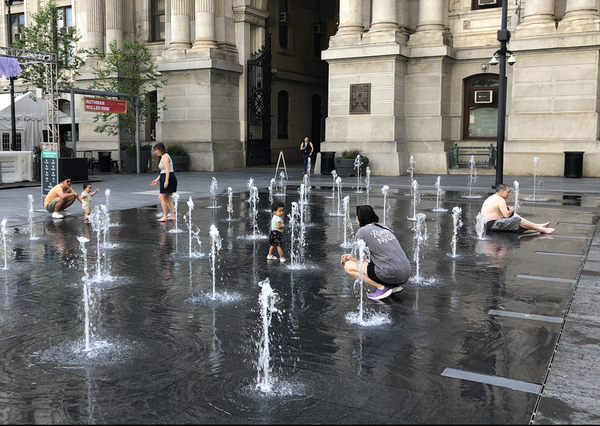With temperatures expected to reach the upper 90s during the first half of the week, Philadelphia has declared a heat health emergency that lasts until 11:59 p.m. Wednesday – though it could be extended if the heat persists beyond mid-week.
The National Weather Service also has issued an excessive heat warning for the Philadelphia region through Wednesday evening. On Monday, the temperature is forecasted to hit 98 degrees with the heat index making it feel like 104 degrees. The high temperature for Tuesday is 100 degrees. On Wednesday, the temperature is expected to hit 96 degrees.
MORE: Local politicians react to Donald Trump assassination attempt at Pennsylvania rally
Philadelphia declares a heat health emergency when temperatures are high enough to put vulnerable people at risk of heat-related illness or death.
"The best way to protect our loved ones is to make sure they can get into air conditioning during the hottest part of the day," acting Health Commissioner Frank Franklin said. "As always, we encourage Philadelphians to check on elderly friends and neighbors to make sure they're safe and don't need assistance."
The city has opened more than 150 cooling centers. They include extended hours at libraries and recreation centers, air-conditioned buses and spraygrounds and swimming pools. The Philadelphia Corporation for Aging's Heatline at (215) 765-9040 is open between 8:30 a.m. and 8:30 p.m. Nurses are available to answer heat-related questions and concerns.
Shutoffs from the Philadelphia Water Department are suspended through the end of the heat health emergency. A Code Red from the Office of Homeless Services is also in place to protect the city's homeless population.
In addition to heat concerns, the National Weather Service said the area is in a "hot and stormy pattern," with severe thunderstorms possible for Monday afternoon and evening.
On Monday, a Code Orange Action Day for air quality is in place for Bucks, Chester, Delaware, Montgomery and Philadelphia counties. Older adults, young children and people with respiratory issues should limit their time outside. The Pennsylvania Department of Environmental Protection also recommends driving less by carpooling or using public transportation, refueling after dusk and conserving electricity to improve air quality.

